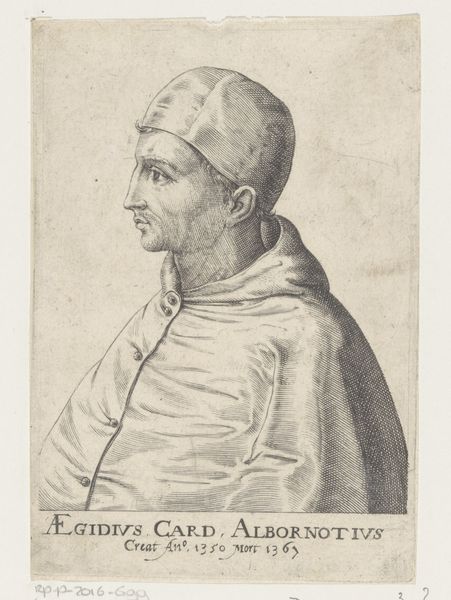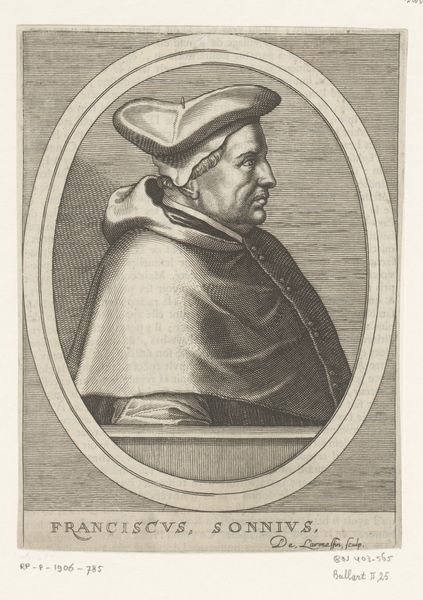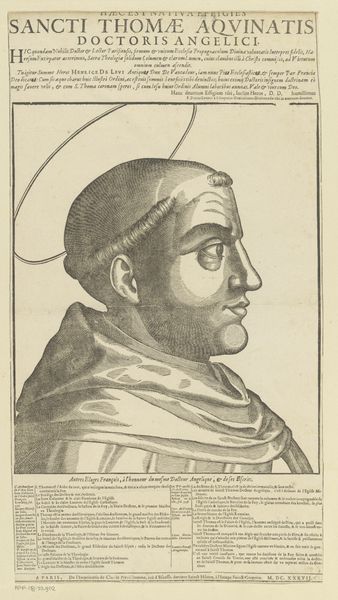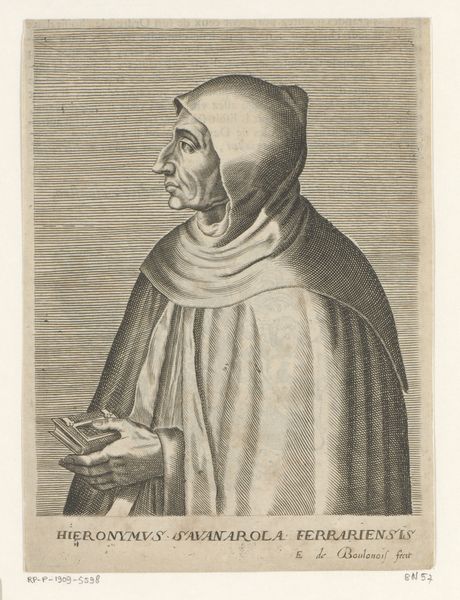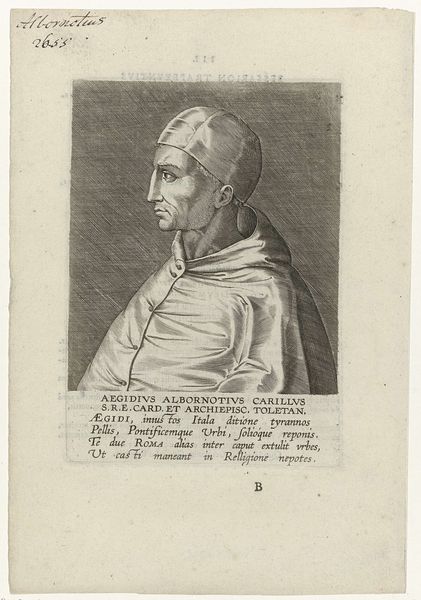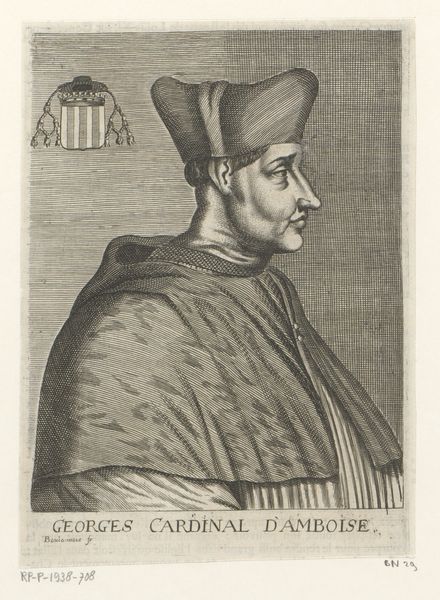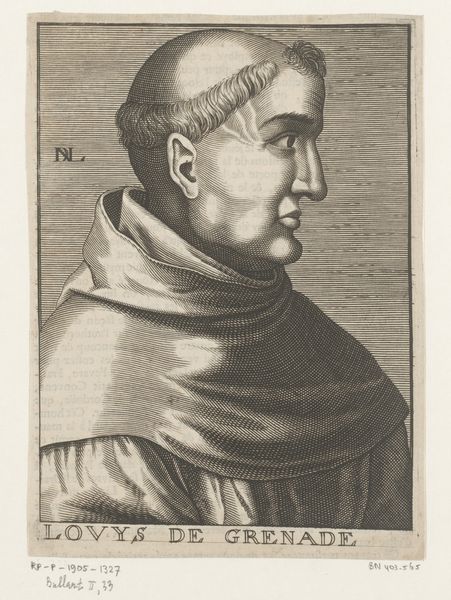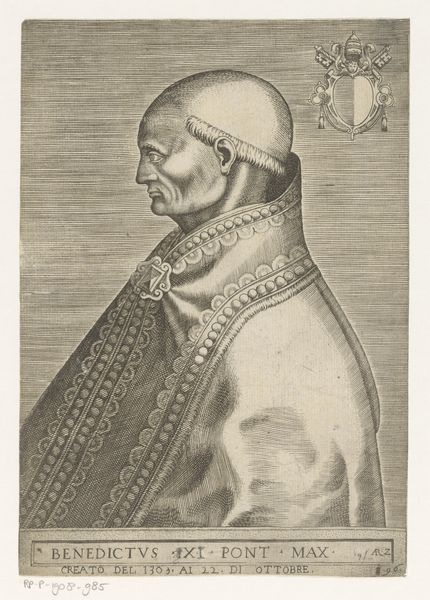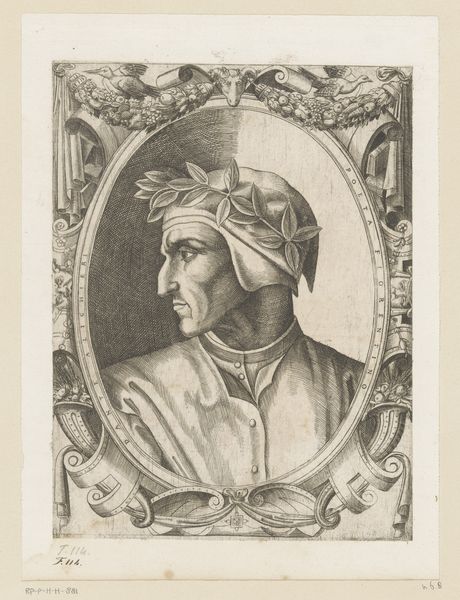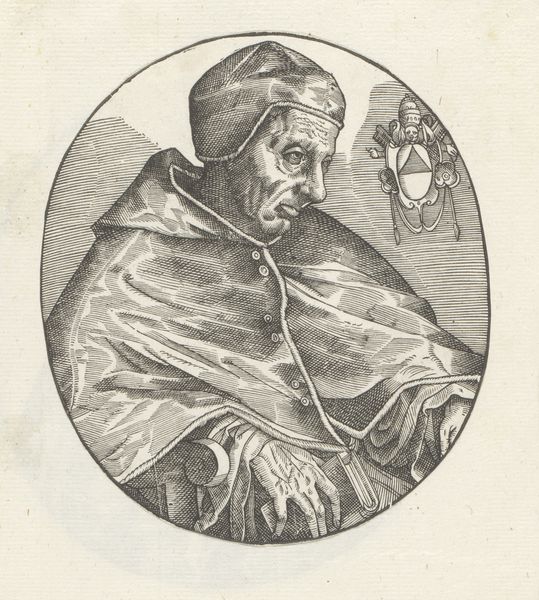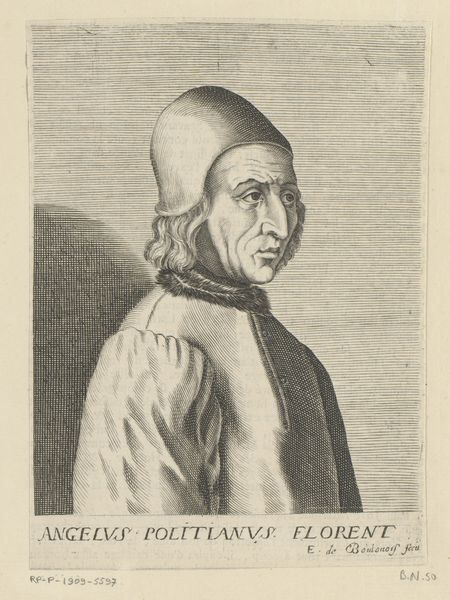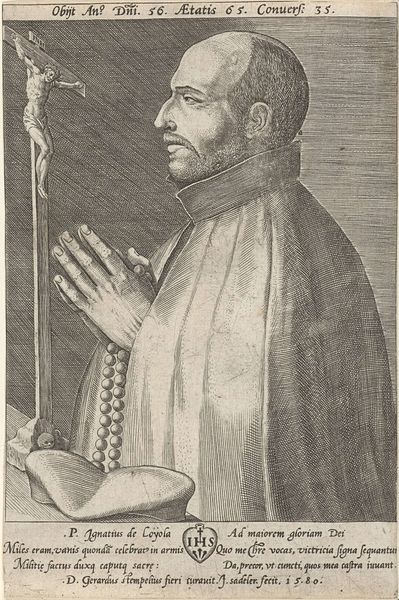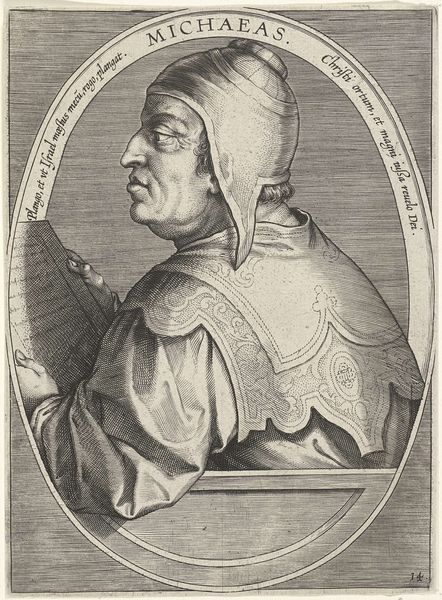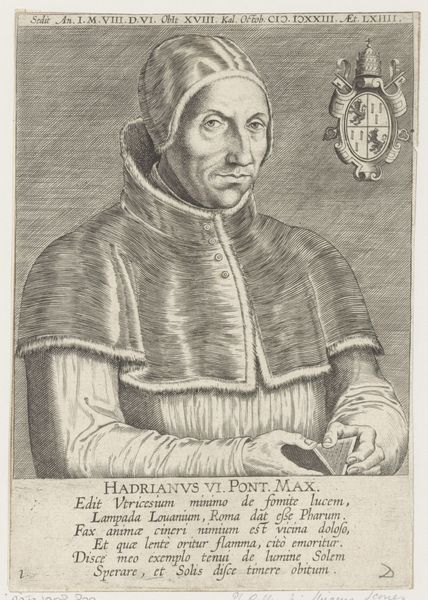
engraving
#
portrait
#
facial expression drawing
#
baroque
#
old engraving style
#
caricature
#
figuration
#
portrait reference
#
line
#
portrait drawing
#
history-painting
#
engraving
Dimensions: height 190 mm, width 143 mm
Copyright: Rijks Museum: Open Domain
This portrait of Gil Álvarez Carrillo de Albornoz was made by Nicolas de Larmessin sometime in the 17th century, using engraving. Look closely, and you’ll see that the image is built up from a multitude of fine lines, cut into a copper plate with a tool called a burin. The engraver’s skill lies in controlling the depth and spacing of these lines to create a sense of light, shadow, and texture. Consider the smooth planes of the face, achieved through a series of closely placed, parallel cuts. Notice, too, how the lines curve to define the contours of Albornoz’s features. The cloak draped over his shoulders is similarly described, with cross-hatching indicating areas of shadow. Engraving was a painstaking process, requiring years of training and a steady hand. The resulting prints would have been relatively inexpensive, thanks to the possibility of producing them in multiples. In this way, Larmessin’s technique, and this print, provided wider access to portraiture, a democratization of the image, and the ability to spread power beyond the sitter.
Comments
No comments
Be the first to comment and join the conversation on the ultimate creative platform.
